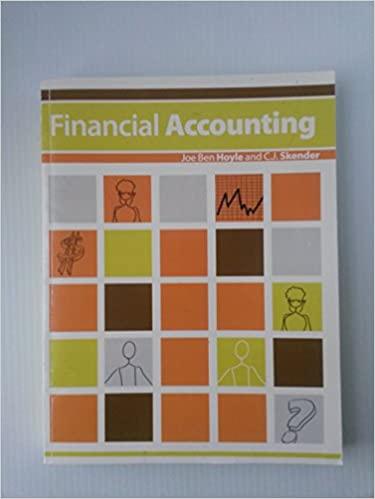



During 20X1, the Brite Time Department Store had credit sales of $1,250,000. The store manager expects that 2% of the credit sales will never be collected, although no accounts are written off until 10 assorted steps have been taken to attain collection. The 10 steps require a minimum of 14 months. Assume that during 20x2, specific customers are identified who are never expected to pay $8.000 that they owe from the sales of 20X1. All 10 collection steps have been completed. Requirements 1. Show the impact on the balance sheet equation of the preceding transactions in 20X1 and 20X2 under (a) the specific write off method, and (b) the allowance method. Which method do you prefer? Why? 2. Prepare journal entries for both methods. Omit explanations. HER Requirement 1. Show the impact on the balance sheet equation of the preceding transactions in 20X1 and 20x2 under (a) the specific write-off method, and (b) the allowance method. Which method do you prefer? Why? Begin by showing the impact on the balance sheet equation under (a) the specific write-off method. (Use a minus sign or parentheses to show a decrease in the accounting equation component and leave any unused cells blank.) (a) Specific Write-OH ) - Assets Liabilities + Stockholders' Equity ' Allowance for Accounts Uncollectible Bad Debt Receivable Accounts Sales Expense 20X1 Sales 20X1 Allowance + = 20X2 Write-off + + + + + = Now show the impact on the balance sheet equation under (b) the allowance method. (Use a minus sign or parentheses to show a decrease in the accounting equation component and leave any unused cells blank.) (b) Allowance Method Assets Liabilities + Stockholders' Equity Allowance for Accounts Uncollectible Bad Debt Receivable + Accounts = Sales Expense + 20X1 Sales + + 20X1 Allowance + + + 20X2 Write-off + = + Which method is preferable? Why? The method is preferable because the revenue earned in 20X1 is really on the accrual basis. Additionally, the bad debts expense should Requirement 2. Prepare journal entries for both methods. Omit explanations. (Record debits first, then credits. Explanations are not required. If no journal entry is required, select "No journal entry required" on the first line of the Accounts column.) (a) Begin by preparing the necessary entries under the specific write-off method. 20X1 Sales Accounts Debit Credit (a) 20X1 Allowance Accounts Debit Credit (a) 20X2 Write-off Accounts Debit Credit (a) (b) Now prepare the necessary entries under the allowance method. 20X1 Sales Accounts Debit Credit (b) 20X1 Allowance Accounts Debit Credit (b) 20X2 Write-off Accounts Debit Credit (b) During 20X1, the Brite Time Department Store had credit sales of $1,250,000. The store manager expects that 2% of the credit sales will never be collected, although no accounts are written off until 10 assorted steps have been taken to attain collection. The 10 steps require a minimum of 14 months. Assume that during 20x2, specific customers are identified who are never expected to pay $8.000 that they owe from the sales of 20X1. All 10 collection steps have been completed. Requirements 1. Show the impact on the balance sheet equation of the preceding transactions in 20X1 and 20X2 under (a) the specific write off method, and (b) the allowance method. Which method do you prefer? Why? 2. Prepare journal entries for both methods. Omit explanations. HER Requirement 1. Show the impact on the balance sheet equation of the preceding transactions in 20X1 and 20x2 under (a) the specific write-off method, and (b) the allowance method. Which method do you prefer? Why? Begin by showing the impact on the balance sheet equation under (a) the specific write-off method. (Use a minus sign or parentheses to show a decrease in the accounting equation component and leave any unused cells blank.) (a) Specific Write-OH ) - Assets Liabilities + Stockholders' Equity ' Allowance for Accounts Uncollectible Bad Debt Receivable Accounts Sales Expense 20X1 Sales 20X1 Allowance + = 20X2 Write-off + + + + + = Now show the impact on the balance sheet equation under (b) the allowance method. (Use a minus sign or parentheses to show a decrease in the accounting equation component and leave any unused cells blank.) (b) Allowance Method Assets Liabilities + Stockholders' Equity Allowance for Accounts Uncollectible Bad Debt Receivable + Accounts = Sales Expense + 20X1 Sales + + 20X1 Allowance + + + 20X2 Write-off + = + Which method is preferable? Why? The method is preferable because the revenue earned in 20X1 is really on the accrual basis. Additionally, the bad debts expense should Requirement 2. Prepare journal entries for both methods. Omit explanations. (Record debits first, then credits. Explanations are not required. If no journal entry is required, select "No journal entry required" on the first line of the Accounts column.) (a) Begin by preparing the necessary entries under the specific write-off method. 20X1 Sales Accounts Debit Credit (a) 20X1 Allowance Accounts Debit Credit (a) 20X2 Write-off Accounts Debit Credit (a) (b) Now prepare the necessary entries under the allowance method. 20X1 Sales Accounts Debit Credit (b) 20X1 Allowance Accounts Debit Credit (b) 20X2 Write-off Accounts Debit Credit (b)










